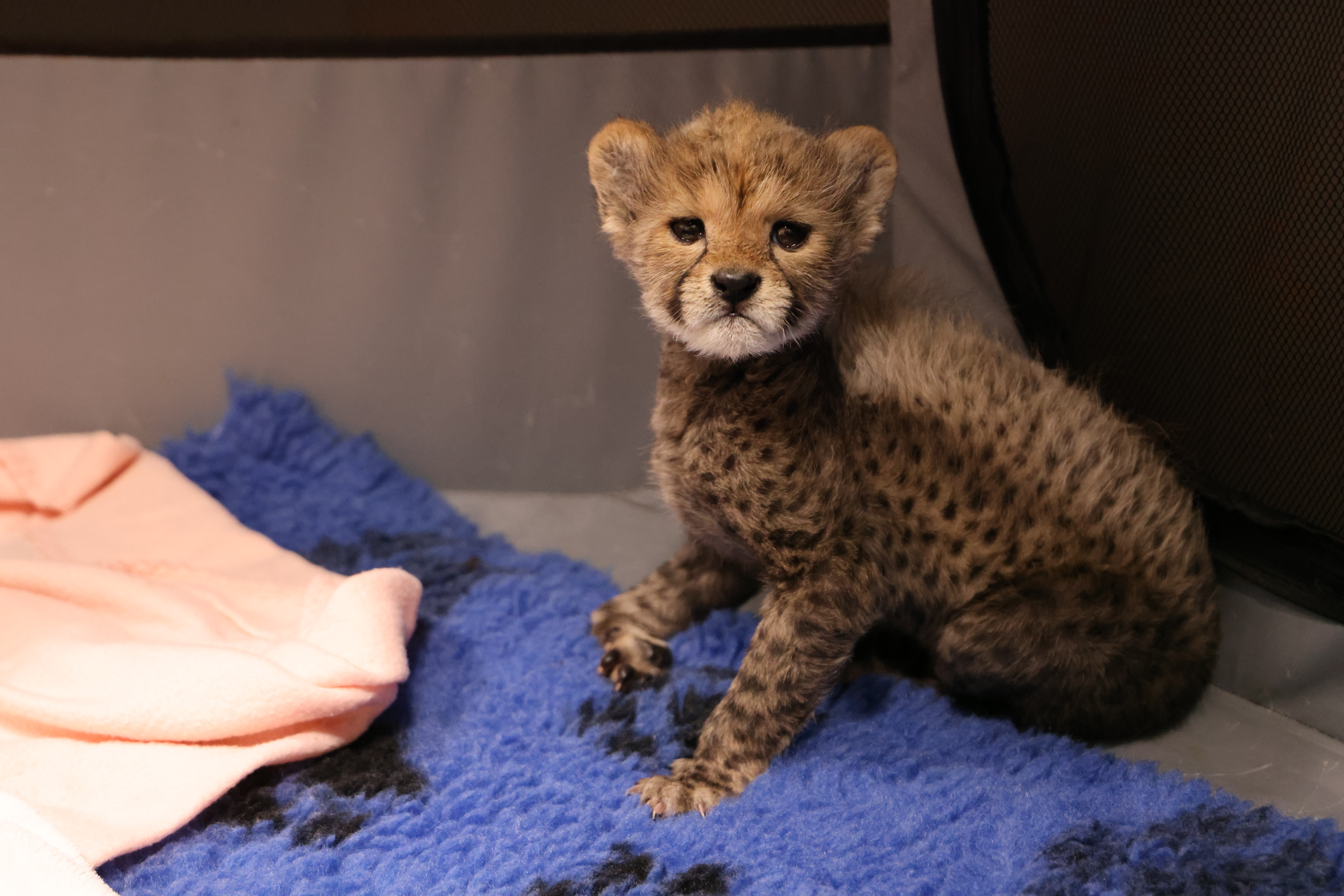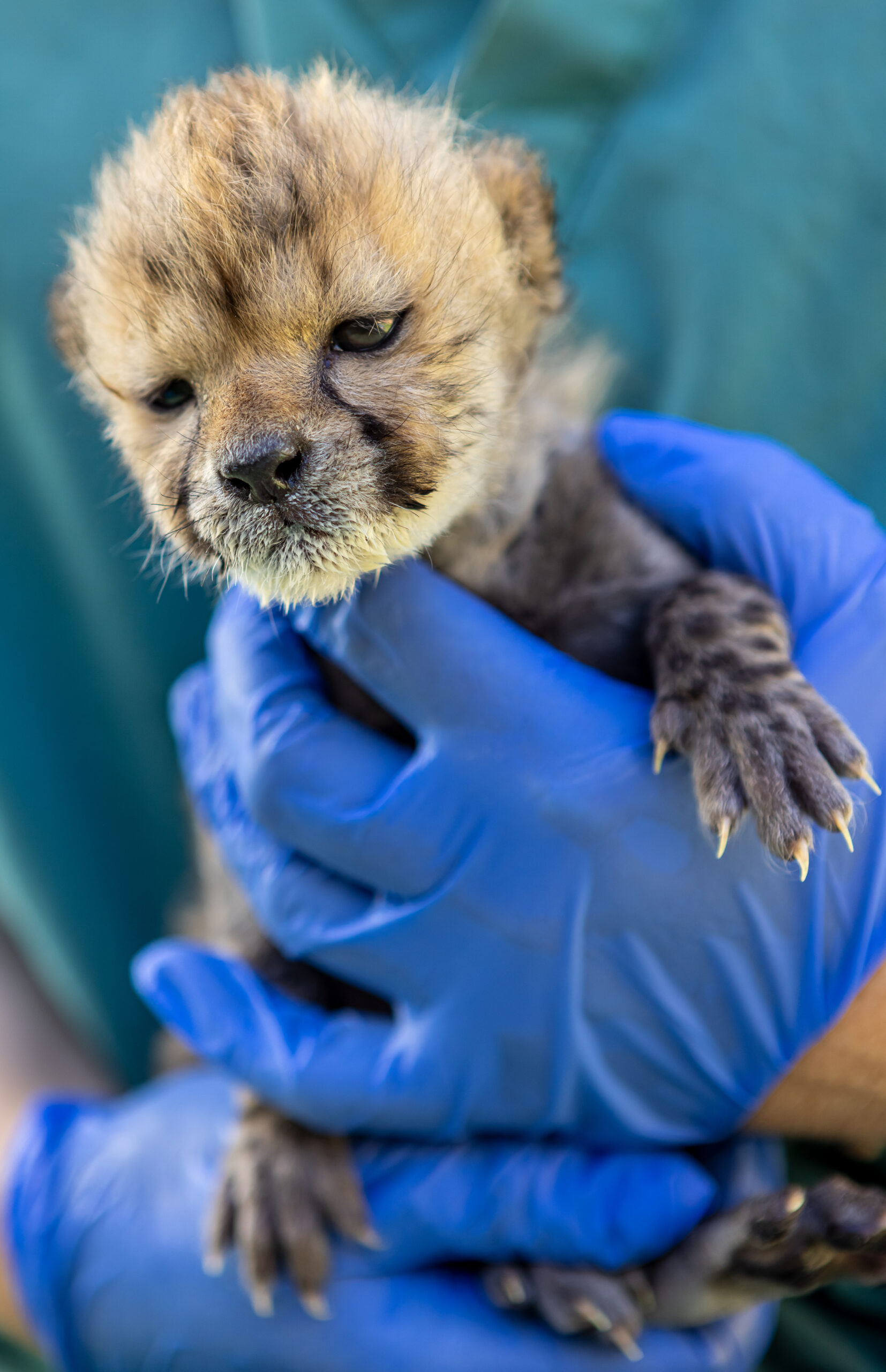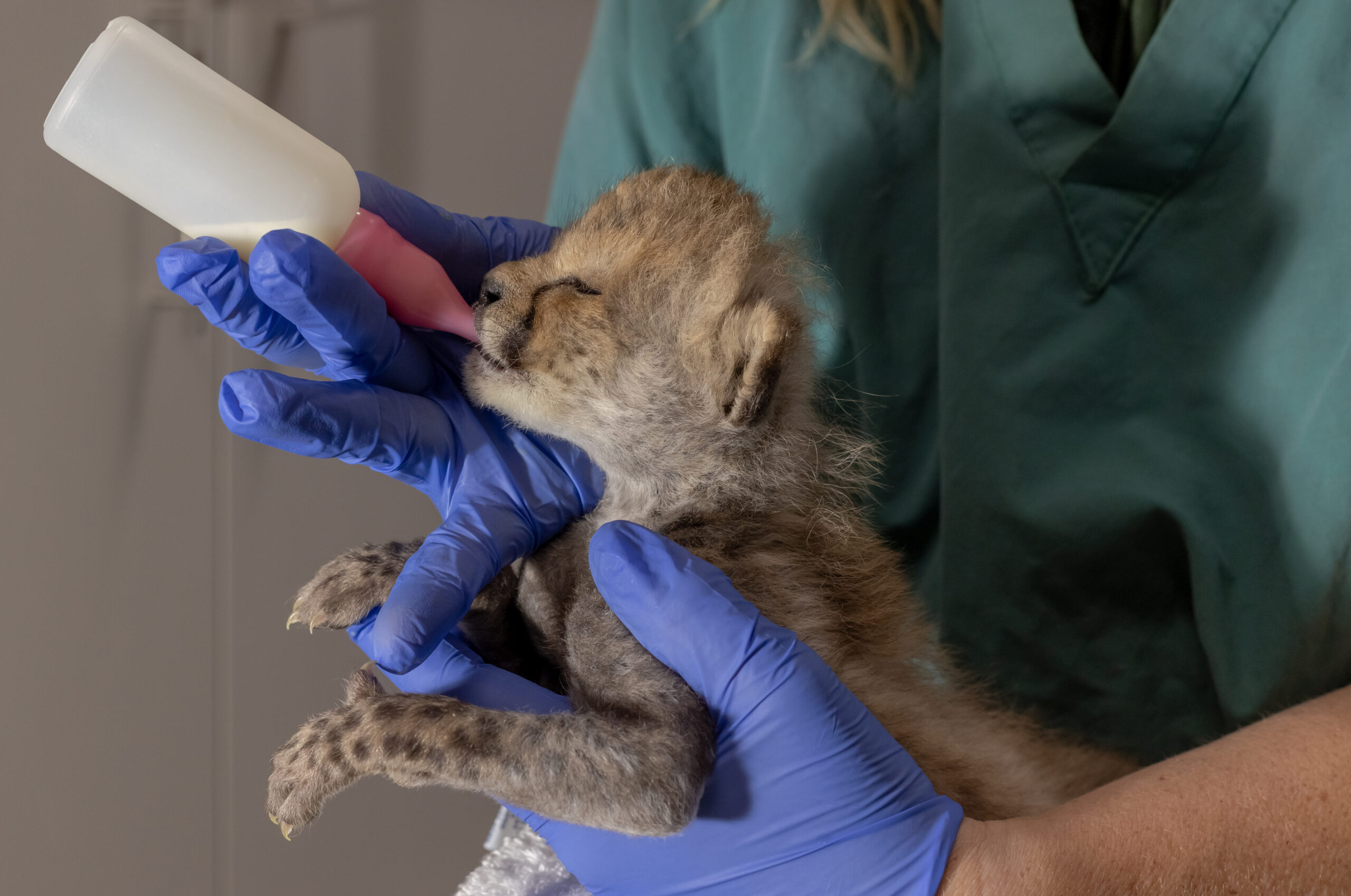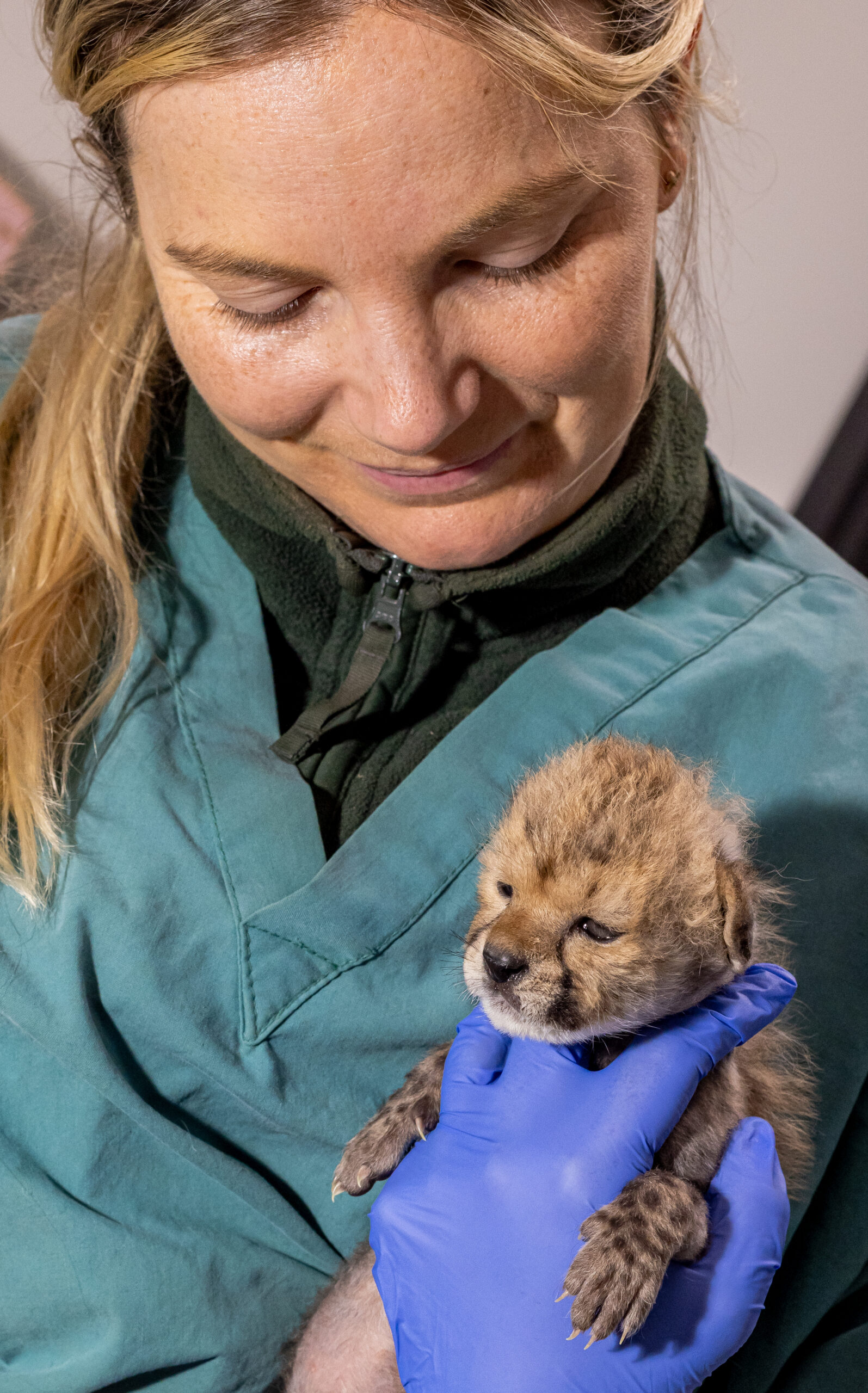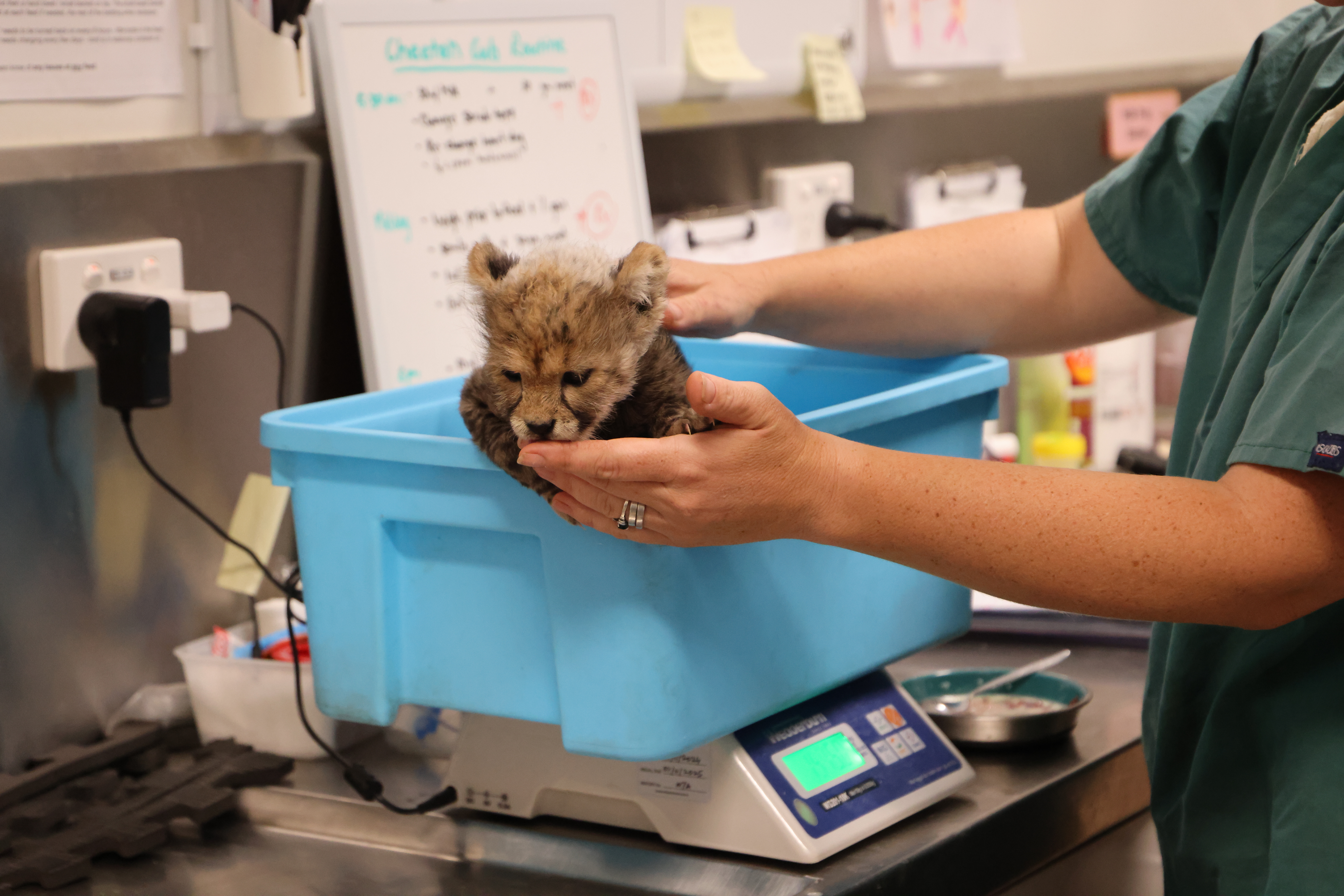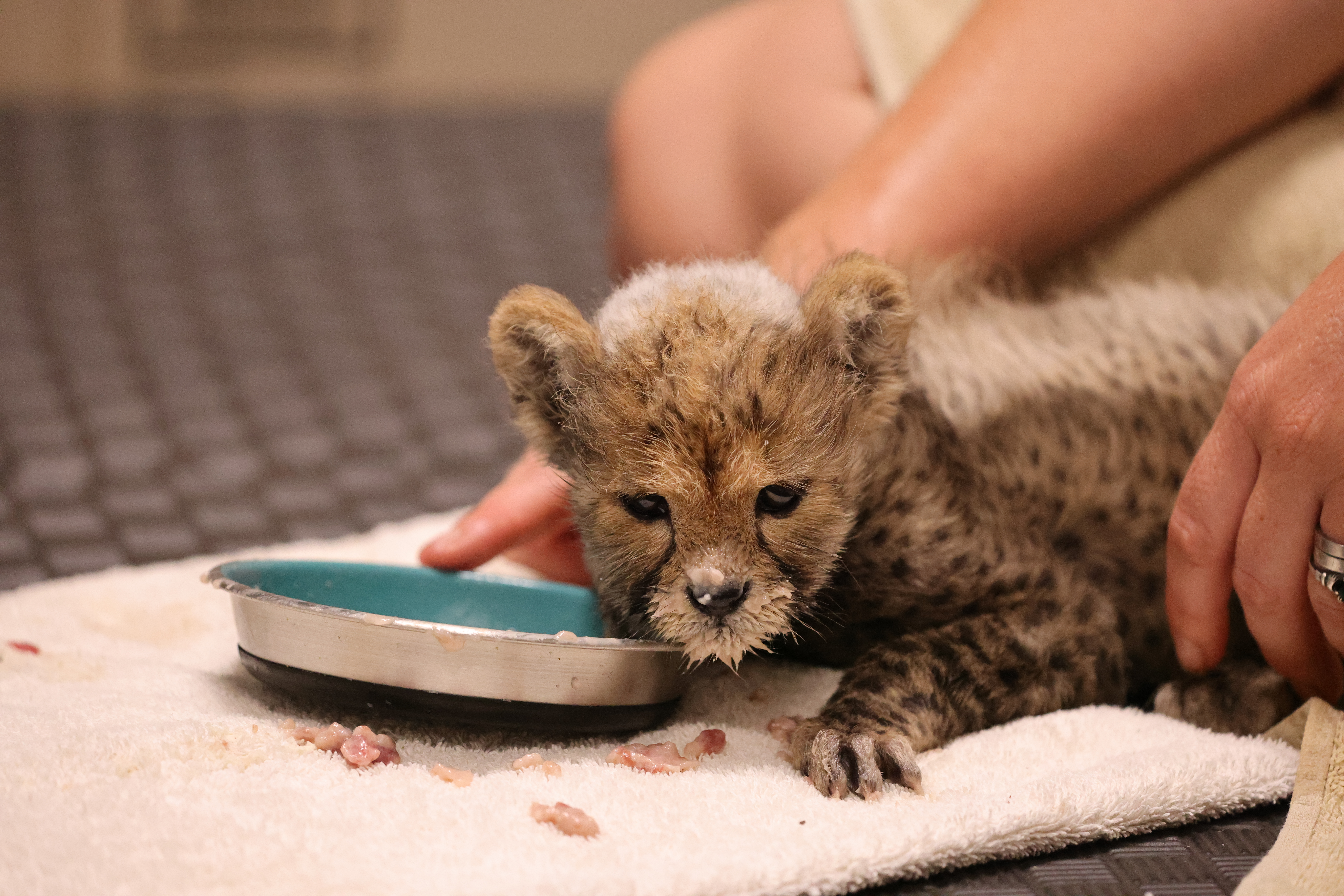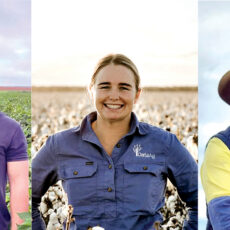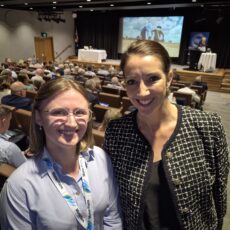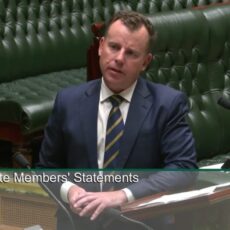In the early hours of February 22, 2025, zookeepers at Taronga Western Plains Zoo Dubbo watched on anxiously as Cheetah ‘Siri’ went into early labour.
The Cheetah, who had challenges conceiving and miscarried a litter in 2024, was still five days from her earliest due date.
“Though five days doesn’t sound like a lot, a Cheetah’s pregnancy is about 93 days and so those final five days are critical,” said Senior Veterinarian Dr Alisa Wallace, who leads the Wildlife Hospital team at Taronga Western Plains Zoo.
With cameras in Siri’s den box, keepers noticed that something wasn’t right and made the decision to perform an emergency C-section to give the cubs the best chance to survive.
The procedure took place at the Taronga Wildlife Hospital, Dubbo, in full view of guests who were at the Zoo that Saturday afternoon.
“Our visitors were actually able to witness the delivery of these cubs and see all of the care that goes into that procedure,” Dr Wallace said. “I know there were a lot of people very excited to see the cubs take their first breath.”
It was “all hands-on deck” with keepers, vets and vet nurses working throughout the afternoon to deliver four cubs and keep Siri stable. Unfortunately, two of the cubs were stillborn, with a third succumbing to pneumonia – a common complication in premature babies – six days after it was born.
The fourth and final cub required supplemental oxygen, IV fluids, hand-feeding and constant monitoring in an incubator in the hospital’s ‘Cheetah NICU’. She has now moved out of intensive care but will remain at the Wildlife Hospital for the foreseeable future, where the veterinary team can continue to monitor her kidney function, vision and development of her motor skills.
Mum Siri made a complete recovery, however due to the cub’s complex health needs it was not possible to reunite the mother and daughter. It’s not the first time the vet team and keepers at Taronga Western Plains Zoo have hand-raised a Cheetah cub, as Siri was hand-raised herself in 2015 following rejection by her mum, a common occurrence with Cheetah if they have a single cub.
“Some of the members of the team that looked after Siri are now looking after her daughter almost 10 years later, which is pretty special,” said Cheetah keeper, Jordan Michelmore.
Cheetahs are classified as vulnerable in the wild with fewer than 7,000 mature individuals remaining. Wild populations continue to decline due to human-wildlife conflict, loss of habitat and habitat fragmentation, poaching and illegal wildlife trafficking. Cheetah are also notoriously difficult to breed, so every birth is extremely valuable to the global population.
Taronga Western Plains Zoo is part of the international Cheetah breeding program, and the first Australasian zoo to breed the species.
“This little cub is really important,” Dr Wallace said. “Siri is quite genetically valuable, and having her offspring born and be able to grow up and reproduce is really important for the survival of the population.”
The cub will remain behind the scenes until she is robust enough to make her public debut.
In the meantime, guests can learn more about Taronga’s breeding program at the free Cheetah Keeper Talk at 11:20am every Tuesday, Thursday, Saturday and Sunday. Guests can also see how Taronga heals the wild with the Wildlife Hospital precinct also included with their Zoo Ticket. Tours into the hospital itself cost in addition to entry.
Taronga is not-for-profit. Every dollar you spend has the Power to Protect. Whether you visit, stay overnight, donate, become a Zoo Friend or Zoo Parent, book an unforgettable behind the scenes experience or buy a gift for a loved one, every dollar helps save wildlife.
Taronga proudly acknowledges the NSW Government’s support of Taronga’s Wildlife Hospitals.
The Taronga Zoo regularly partners with The Courier and its sister publications to offer free passes to its Dubbo and Sydney zoos.
Cheetah delivery @ Taronga Western Plains Zoo


